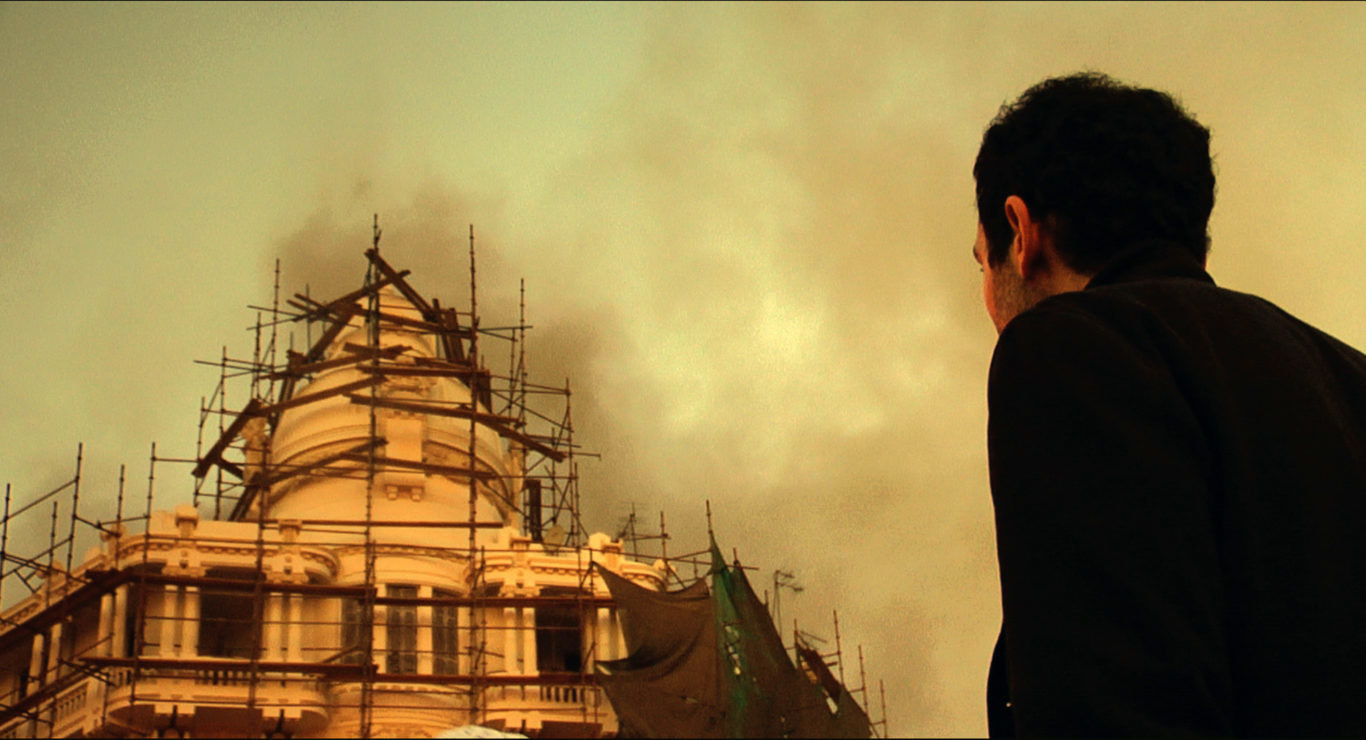|
Difficult to quantify, Tamir El Said's In The Last Days of the City takes place in Cairo, 2009, telling the story of Khalid, a 30-something documentary filmmaker, who is struggling to capture the soul of his home against the backdrop of such instability, uncertainty, and state-based oppression. Predating the start of the Arab Spring, Tamer El Said's In the Last Days of the City is a powerful reflection on a region of the world teetering on the edge of great change, a film that weaponizes its film-within-a-film construction to deliver a powerfully efficient, ingenious elegy about a region in crisis. Blending cinema-verite sensibilities with a loosely-constructed coming-of-age narrative, In the Last Days of the City is an immersive experience, one that juxtaposes the idyllic beauty of Cairo with the existential threats the region finds itself confronted with, where violence and death are daily companions in everyday life. The narrative itself is intentionally loosely constructed, with our main protagonist's documentary-making characterization allowing an aesthetic that is much more documentary-like, being extremely observational in how it presents the city of Cairo. Melancholic and insightful, The Last Days of the City is a deconstruction of the importance of the places we call home, reflecting on how where we are from often defines us as individuals, not necessarily in a tribalistic way per se, but in one driven by the the emotional attachment in which familial spaces can provide. In the Last Days of the City isn't fierce or angry, it's melancholic, exposing the viewer to a host of young 30-something individuals whom are struggling to define themselves in an unstable world. Their sense of identity is being confronted, potentially damaged, or even subverted by the volatile nature of a region going through major upheaval, each individual being uniquely effected by the instability of their home, whether that be Egypt, Iraq, or Lebanon. In the Last Days of Cairo never shy's away from showing the oppression and violence carried out by the state, yet it never conflates the government with the people, showcasing how different cultures, both old and new, secular and non-secular, coexist in Cairo on the streets, yet through the government, and the various power structures which fight for control and authority over the masses, instability, oppression and violence are commonplace. Taking place in 2009 Cairo, In the Last Days of the City already feels like remnant of the past, a melancholic elegy to a city pre-dating the Arab Spring that isn't particularly political in nature, instead being far more concerned about the region and its people, a film that views such a complexities of the unstable region with sweeping humanism, in which its only true focus maintains fixated on non-violence and the tragic nature of displacement.
0 Comments
Leave a Reply. |
AuthorLove of all things cinema brought me here. Archives
June 2023
|

 RSS Feed
RSS Feed
